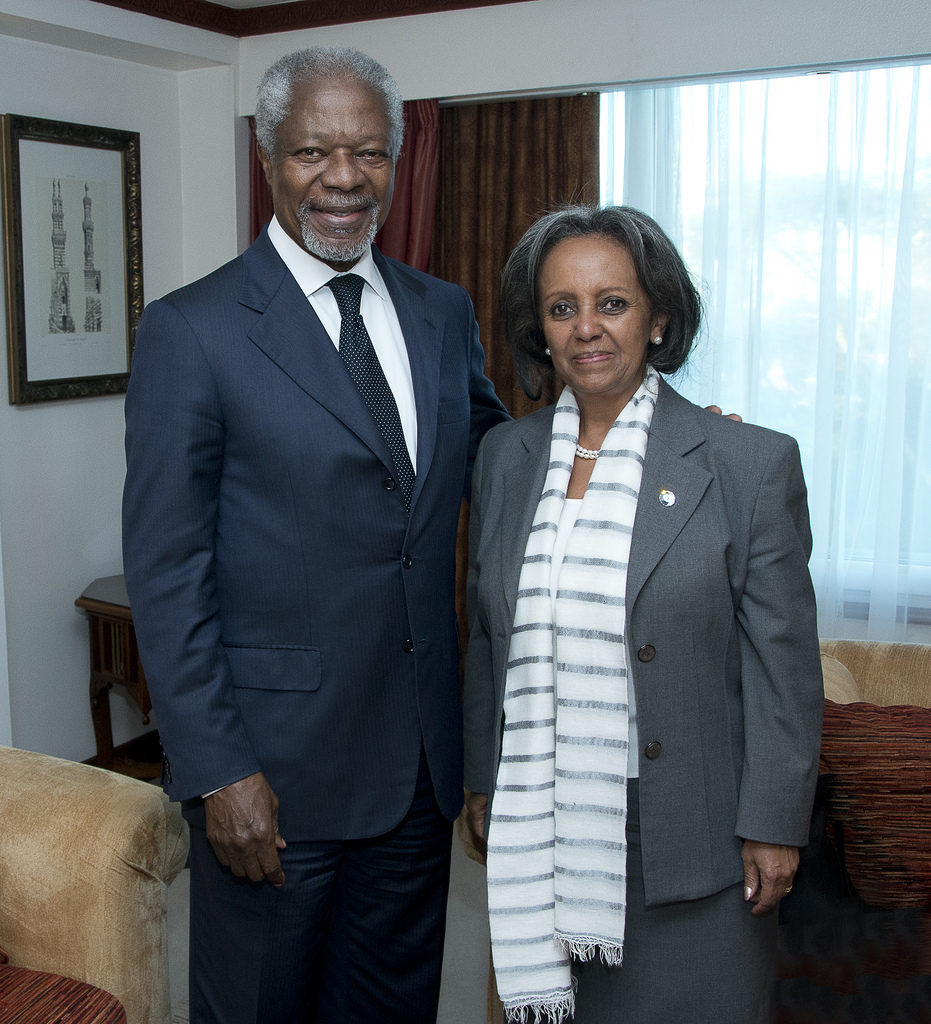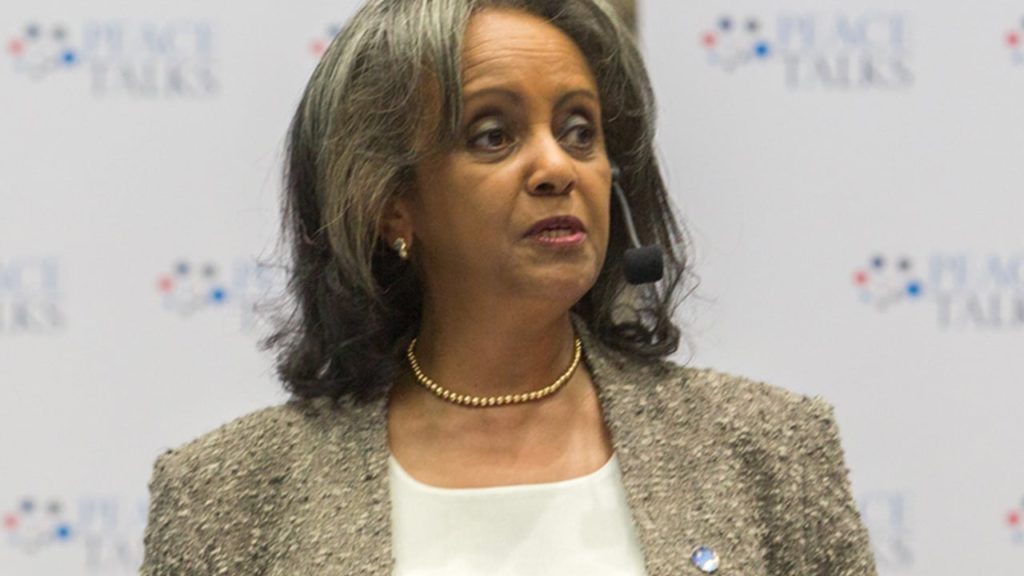 Ambassador Sahlework Zewde, a prominent Ethiopian diplomat with years of experience with the UN, will be replacing the outgoing president, Dr Mulatu Teshome, who has been the president since October 2013.
Ambassador Sahlework Zewde, a prominent Ethiopian diplomat with years of experience with the UN, will be replacing the outgoing president, Dr Mulatu Teshome, who has been the president since October 2013.
She will become the first female head of state since the coming into power of the current government led by EPRDF.
In 2011, Former United Nations Secretary-General, Ban Ki-moon, appointed her as Director General of the UN office in Nairobi (UNON), which was then a newly created position.
She was appointed in June this year by Secretary-General António Guterres as his Special Representative to the African Union and Head of the United Nations Office to the African Union (UNOAU) at the level of Under-Secretary-General.
Ambassador Sahlework’s three decades working with the United Nations spans from Special Representative and Head of the United Nations Integrated Peacebuilding Office in the Central African Republic (BINUCA) to the Permanent Representative of Ethiopia to the African Union and the United Nations Economic Commission for Africa (ECA) and Permanent Representative to the United Nations Educational, Scientific and Cultural Organization (UNESCO) and accredited to Tunisia and Morocco.
Sahle-work also has a rich ambassadorial track record having served as Ethiopian ambassador to several countries. She was the second woman to hold an Ambassadorial position in the history of Ethiopia.
In her work as an Ethiopian diplomat, Ambassador Sahlework served as Director-General for African Affairs in the Ministry of Foreign Affairs of Ethiopia as well as Ethiopian Ambassador to France. From 1993 to 2002, she served as Ambassador to Djibouti and Permanent Representative to the Intergovernmental Authority for Development (IGAD), and to Senegal, with accreditation to Mali, Cape Verde, Guinea-Bissau, Gambia and Guinea.
What the Ethiopian Constitution says about the president
Article 70: Nomination and Appointment of the President
1. The House of Peoples’ Representatives shall nominate the candidate for President.
2. The nominee shall be elected President if a joint session of the House of Peoples’ Representatives and the House of the Federation approves his candidacy by a two-thirds majority vote.
3. A member of either House shall vacate his seat if elected President.
4. The term of office of the President shall be six years. No person shall be elected President for more than two terms.
5. Upon his election in accordance with sub-Article 2 of this Article, the President, before commencing his responsibility, shall, at a time the joint session of the Houses determines, present himself before it and shall make a declaration of loyalty to the Constitution and the Peoples of Ethiopia in the following words:
“I ….., when on this date commence my responsibility as President of the Federal Democratic Republic of Ethiopia, pledge to carry out faithfully the high responsibility entrusted to me.”
Article 71: Powers and Functions of the President
1. He shall open the joint session of the House of Peoples’ Representatives and the House of the Federation at the commencement of their annual sessions.
2. He shall proclaim in the Negarit Gazeta laws and international agreements approved by the House of Peoples’ Representatives in accordance with the Constitution.
3. He shall, upon recommendation by the Prime Minister, appoint ambassadors and other envoys to represent the country abroad.
4. He shall receive the credentials of foreign ambassadors and special envoys.
5. He shall award medals, prizes and gifts in accordance with conditions and procedures established by law.
6. He shall, upon recommendation by the Prime Minister and in accordance with law, grant high military titles.
7. He shall, in accordance with conditions and procedures established by law, grant pardon.




